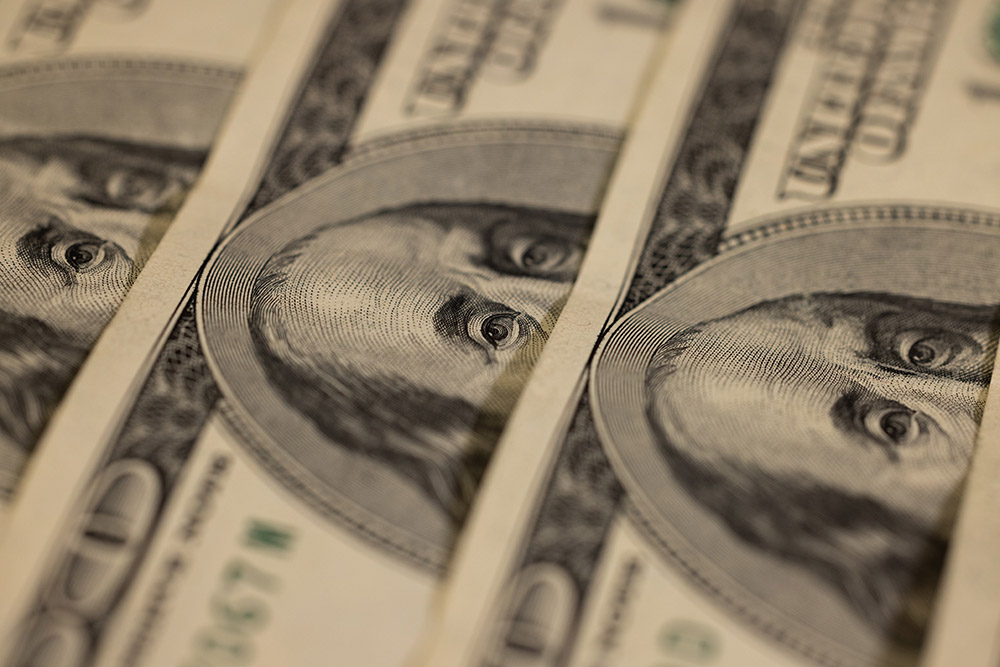
Until the pandemic began, the U.S. economy had grown for decades without the curse of high inflation. There were bumps along the road, especially the 2007-2008 financial crisis, but nothing like the days of runaway inflation in the 1970s. But when COVID-19 restrictions caused supply shocks and when Russia’s invasion of Ukraine brought fuel shortages, inflation reappeared.
To curb it, the Federal Reserve Board has been raising interest rates, making it more difficult for individuals and businesses to borrow money. With less borrowed money to spend, demand for goods and services goes down, eventually resulting in lower prices. Reduced demand also results in layoffs. Unemployed workers have less money to spend, which puts further downward pressure on prices of consumer goods.
Raising interest rates, however, is a blunt instrument, and only one way to fight inflation. Another is to tighten fiscal policy, but Congress has shown that it is unwilling to use this tool. Fighting inflation using only higher interest rates is tantamount to fighting with one hand tied behind your back.
Everyone agrees our inflation woes began with interruptions in supply chains caused by the pandemic. Many factories and businesses closed; transportation became difficult. Shortages led to price increases.
In addition, as workers stayed home, consumer patterns changed. More money was spent on goods and less on services. Online sales went up; in-store sales went down. Suppliers that packaged goods for restaurants, schools and businesses lost their clients, while grocery stores ran out of toilet paper. All these disruptions resulted in higher prices for goods.
Raising interest rates does not solve supply chain difficulties.
Everyone also agrees that a housing shortage is afflicting many parts of the country. In the short run, increasing interest rates may reduce demand and prices for home purchases, but higher rates also make it more expensive for builders to borrow money, making the housing shortage worse. Housing shortages contribute to higher home prices and rents.
International turmoil contributed to U.S. inflation as well. COVID-19 shutdowns in China exacerbated shortages. OPEC decided to increase prices. The war in Ukraine disrupted Ukrainian grain exports and led to a cutoff of Russian oil and gas to Europe. Increasing interest rates will not solve these problems either.
What increasing interest rates has done is slow the economy and cause turmoil for those dependent on credit. Banks are suffering because they invested in long-term mortgages and bonds with low interest rates that are now worth less than their face value. Consumers are being hit with higher interest rates on credit cards.
Conservative economists argue that the real cause of inflation is that government aid during the pandemic put too much money into the hands of consumers. But while some people may have received money they didn’t need, without these subsidies the pandemic would have led to a deep and painful recession.
One COVID-era measure, the child tax credit, showed that it is possible to lift millions of children out of poverty if we want to. Expanding SNAP, the government food stamps program, reduced hunger, and expanding Medicaid protected the health of millions of poor people. This was all necessary to pull people through the pandemic.
It’s true that in inflationary periods, governments should reduce deficits, but the real problem here is that Congress is showing itself to be incapable of adjusting fiscal policy to fight inflation.
Fiscal policy can be more targeted than monetary policy. While cutting deficits, the government can still fund programs to increase housing. It can support alternative sources of energy that eventually will reduce energy prices. It can also enact taxes that hit people and companies who have prospered before and during the pandemic.
Unfortunately, we have a political stalemate in which Democrats support expanding government social programs while Republicans support cutting taxes. The American people like both Democratic programs and Republican tax cuts, even though the two are incompatible.
This leaves the unelected Federal Reserve Board as the only party that can take action.
The failure of our democracy, in other words, is the greatest threat to our economy. The latest example of this is the Republican attempt to use the debt ceiling to force Democrats to accept budget cuts.
Democrats rightly object and argue that the congressional budgetary process is the proper place for budget negotiations. But the congressional budgetary process is broken. Congress is unable to enact a reasonable and flexible fiscal policy.
Congress must act decisively to rationalize the budgetary process to restore confidence in government. Perhaps Congress could learn something from the Catholic Church — specifically, how it elects popes. Papal electors are locked in the Vatican until they elect a pope. In the old days, if they did not elect a pope they were put on bread and water.
I would not put the members of Congress on bread and water, but I would have them dine in the congressional cafeterias and confined to Capitol Hill if they do not approve all appropriation bills before the beginning of the fiscal year. No visits to their home districts, no campaign or fundraising trips. If they leave the Hill for anything other than a health emergency, they should lose their seats.